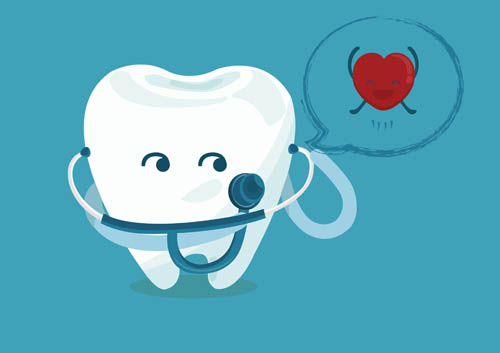Five Things You Didn't Know About Cavities
January 31st, 2024

Most people know when they have a cavity—they can either see it on their tooth or... ouch! They can feel it! But there are certain things that many of our patients don't know about cavities that could save them a trip to our Naugatuck office!
1. Not all sugars are created equal
It's quite well known that eating dietary sugars in excess along with poor oral hygiene leads to dental decay such as cavities. This is due to the fact that the bacteria in your mouth feed on these sugars and excrete acids as a byproduct of that process, thus causing decay. But xylitol, a sugar alcohol derived from birch or corn, actually prevents the bacteria from converting sugars into acids.
Xylitol is available in the form of gum, mints, toothpaste, and even in a granulated form much like regular cane sugar. You might consider trying some xylitol products between meals to keep your mouth clean and fresh.
2. It's not always what you eat but HOW you eat
Are you a grazer, always snacking between meals and never satisfied? We now know that this kind of eating can contribute to cavities and other oral health problems.
Every time you eat anything with carbohydrates in it, you're feeding the bacteria in your mouth, which in turn produce acids. If you're constantly eating, it doesn't allow your saliva time to bring the pH of your mouth back into a more alkaline, neutral state. It takes your saliva about 20 minutes to neutralize the acids in your mouth after eating.
It's especially easy to harm your teeth in this way with soft drinks, sipping all day long. So, it's best to avoid sugary drinks and junk food, and if you need a snack opt for healthy vegetables or what are known as "detergent foods." If you do decide to drink a soft drink or eat something sugary, have it all at once and not over the course of the day.
3. Flossing is one of the most important oral hygiene techniques
Although most of our patients are aware that they need to brush, sometimes they can get lackadaisical when it comes to flossing. And that's a big mistake. Flossing is one of the most important (and we daresay, easiest) things someone can do to help prevent cavities and tooth decay.
You see, as we've already mentioned, the bacteria in your mouth that cause cavities feed on the food you eat. So if you've got pieces of that food stuck between your teeth all day and night, every day, that's asking for a problem.
Flossing clears that bacteria-feeding food out from between your teeth. Floss daily and whenever you decide to do it, morning or night, just do it!
4. A dry mouth can lead to cavities and tooth decay
Your teeth's best defense against cavities and tooth decay is actually your saliva! We've already talked about the pH neutralizing effect saliva has. So if you find you have a dry mouth often, make sure to have some water to sip on. Or why not try some xylitol mints or gum to get your saliva production kicked into action?
5. Over-brushing can damage your enamel
If you brush like a construction worker with a jackhammer, you should ease up! Brushing too hard can scrape away at your teeth's enamel, which leaves them more susceptible to cavities and decay. Brush lightly, with your brush angled at the gum line for two minutes, twice a day. That's all that is required!





